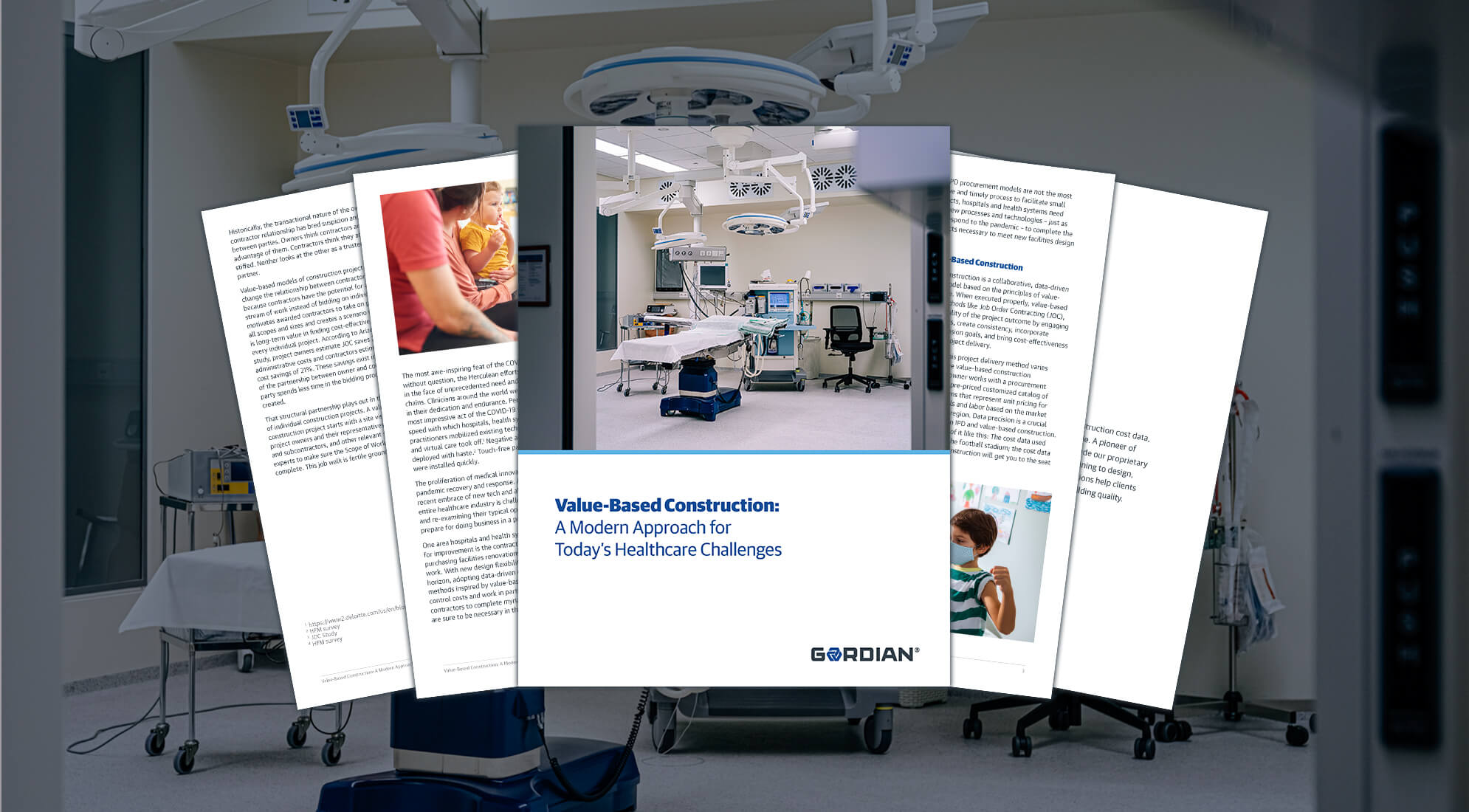As state and local governments feel more internal and external pressure to build equitable communities, meeting and exceeding Diversity, Equity and Inclusion goals (DE&I goals) are becoming a significant area of focus for public procurement officials. Gordian polled the audience during a webinar presented in partnership with GovLoop to find out how pursuing DE&I goals has changed the way they work. 40% of the audience reported that DE&I goals are now included in contract negotiations and 56% said DE&I is a greater area of focus than it was in the past.
Public procurement officials that are just beginning their journey to create more equitable procurement practices may feel like they are spinning their wheels. Procurement regulations can be cumbersome on their own – particularly construction procurement regulations, and striving to achieve DE&I goals adds a layer of complexity to the process. But the outcomes are worth the effort. As Ky Willson, Senior Staff Analyst, Title VI with the Office of Business Opportunity in Houston, Texas, explained during the conversation with GovLoop, “If our businesses are doing well, then our communities are doing well, our children are doing well, our seniors are doing well and the whole community benefits.”
Here are five tips for meeting DE&I goals via construction contracting practices.
Tip 1: Review Your Vendor List
An excellent way to start improving your DE&I contracting efforts is to review your current list of vendors. Ask yourself how robust your database is and how it compares with the local population. If you find your vendor list falls short of the population data, it’s time to add new construction contractors to the list.
Also, consider the process by which contractors can become part of the list. An easily accessible online application is best for enabling contractors to join your vendor list.
Tip 2: Set Expectations With Your Suppliers
Your current general contractors can help you fill your subcontractor roster with minority- and women-owned businesses to help you achieve your DE&I goals. Your suppliers know they can become more valuable to you if they can help you meet the standards your organization has put in place. Enlist their help. Let your general contractors know you expect a certain percentage of their subs to come from MWBE-owned businesses and they will come through for you with stellar recommendations.
Tammy Rimes, Executive Director at National Cooperative Purchasing Partners (NCPP), suggested using a shared contract to purchase construction services because the solicitation is already complete and agencies can piggyback on those existing contracts that already specify DE&I requirements.
Tip 3: Reach Out to Neighbor Agencies
If your local suppliers are unable to help you meet your DE&I goals by putting you in touch with a diverse pool of contractors, extend your reach further. The public procurement community is a supportive one, so get in touch with your colleagues in surrounding cities, counties, towns, etc. and ask if they would share their contractor list with you. Likewise, if you have a trusting professional relationship with other procurement professionals in your area, ask if you can reach out to their contractors.
Tip 4: Partner With Minority Contractor Associations
Millions of minority contractors belong to trade associations that represent their interests. The National Association of Minority Contractors, for example, is the oldest minority construction trade association in the United States and has a network of local chapters around the country. There’s also the National Association of Black Women in Construction, the Hispanic American Construction Industry Association and the U.S. Minority Contractors Association, to name a few.
Rimes, a former purchasing agent for the City of San Diego, recommended diversifying minority trade associations to maximize potential and impact. “You can’t put everyone in the same box. Thinking back to my San Diego days, we would routinely reach out to the organizations and meet with them individually to listen to what their individual issues are.”
In addition to learning the needs of minority contractors, such associations can help foster positive relationships between public agencies and contractors. “If contractors hear from their association, from people they trust, that working with the government might be a good avenue for them, we’re more successful,” Rimes shared.
Gordian’s Vice President of Operations for Central/South Dwayne-Pierre Antoine predicted that the bond between minority contractor associations and government agencies will get stronger. “As minority contractor associations get larger, we will start to see more agencies reach out to them to bring in their membership base.”
But what do procurement officers without a local minority trade association do? Who can they talk to? Willson has had success working with the local Chamber of Commerce to reach targeted audiences.
Tip 5: Review Your Internal Processes
Routine construction procurement processes can hinder DE&I efforts. The size of bond requirements and the length of payment schedule, to use two examples, might be a barrier for small, MWBE-owned businesses that cannot afford the required bonds or wait to be compensated on a government schedule.
Pierre-Antoine spoke to his firsthand experience helping agencies adjust their requirements to encourage construction bids from minority contractors for Gordian’s Job Order Contracting (JOC) programs. “We have an opportunity through JOC to work with procurement departments to adjust bonding requirements when it comes to individual projects or Job Orders. The agencies I’ve worked with have been very open to using smaller bonding requirements for set-aside contracts for small businesses.”
Further, bid documents are often lengthy and complex, with important details buried deep within their pages. A cover sheet or checklist that communicates what a contractor must include to have their bid considered makes the process less intimidating for the contractor and increases the likelihood of a quality bid and aid in getting project owners closer to their DE&I goals.
Meeting DE&I Goals: Start Wherever You Are
All of our speakers agreed that it’s important for government agencies to take steps to meeting their DE&I goals – even if they are unsure where those steps will lead. A great place to start is by listening to the MWBE contracting community and addressing their issues and concerns. Doing so will help establish trust and bring more contractors into the fold, which, in turn will help agencies meet their DE&I goals.







